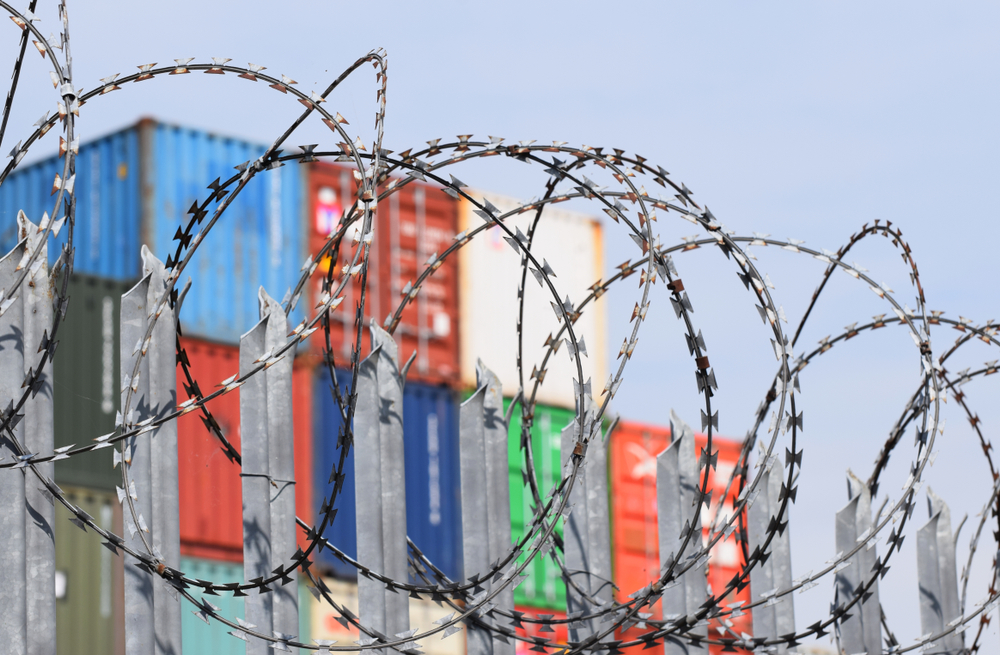Everybody, rock your body, right. Brexit’s back, all right.
Three unilateral moves of London, in quick succession, threaten with the delaying of the European Parliament’s ratification of the Brexit deal. (And those steps followed the refusal by London to grant the proposed new EU ambassador the same status as an ambassador from a state and insisting on treating the new emissary as the representative of an international organization.)
First came the move to extend the deadline on imposing full customs and sanitary checks on food shipped to Northern Ireland. The day after that came the similar measure for requiring customs declarations on most parcels from Great Britain and Northern Ireland. Then, on 5 March, many products containing soil have been cleared for shipment from suppliers in Britain, in clear violation of the EU’s longstanding ban on importing products containing soil from outside the bloc and the Brexit trade deal’s Irish protocol.
The first two steps already prompted European Commission Vice President Maroš Šefčovič to promise infringement proceedings against the UK, saying “We are currently preparing it and it would be really something coming to our table very soon…”.
The Commission reminded that it was the “second time” the UK government was ready to breach international law, again risking the “good faith obligation” under the Withdrawal Agreement.
London, now under the leadership of ex-Brexit-negotiator, now Brexit minister David Frost, stated, that the UK was only taking “temporary operational steps to avoid disruptive cliff edges as engagement with the EU continues”, referring to the series of talks the two parties had in recent weeks. The British intentions are clear: extending the so called “grace periods” until January 2023, rather than letting them expire during 2021. They consider the steps legal and “mild and reasonable”. PM Boris Johnson said that the “problems were technical and could be solved”.
Besides the European Commission, the European Parliament also reacted badly to the moves. Leaders of the various political groups decided on March 4, 2021 to postpone a decision on when to vote to ratify the post-Brexit trade deal.
Voices from Dublin weren’t happy, either, with Irish Foreign Affairs Minister Simon Coveney stating, “Ironically some of the thing the British government has now unilaterally decided to announce, the Irish government has been advocating for in Brussels and in my view we were making progress on. (…) But the way in which the British government has done this, which is essentially to ignore the commitments they have made, the relationships that they have built with the EU side, and instead to make decisions on the basis of politics in Westminster.” He also claimed to have “strongly advised” London “not to do it”.
It is yet to be seen, what solution might surface on the meeting of the EU-UK Joint Committee overseeing the Brexit Withdrawal Agreement. But the dynamics of the events bear similarities to the way Brexit negotiations themselves were handled by Downing Street Nr. 10. and raise some questions about the trustworthiness of UK as a partner. The method, trying to put the blame on Brussels, is the same, too. Like when Northern Ireland Secretary Brandon Lewis blamed the EU, saying “Sadly the EU hasn’t been able to work on a timeframe that works for the supply lines of, for example supermarkets, so we had to make a decision to ensure that we could see a continued flow of products…” and that it “would be an understatement” to say that those steps were disrespectful.
It would be one sided, though, to put the blame solely on London, as less than a month ago, trust was further eroded by a row over vaccine supplies, after the EU announced its plans for export controls on vaccines and threatened to use emergency measures (by triggering Article 16 of the Northern Ireland Protocol) that could create a hard border between Northern Ireland and Ireland. Unlike London, where saber-rattling takes usually more time to reverse, Brussels swiftly changed its position.
All this points to the grim reality that tensions and strained relations are here to stay and both sides are to work hard if they are to confront common threats and reach shared vital interests, both requiring effective cooperation. The problem is that both parties have a few things to gain from confrontation. Brussels can still point to the negative consequences of an “exit”, while also maintain the image of the UK as a third party and an economic competitor. For Downing Street 10, Brussels-bashing has domestic political advantages.
